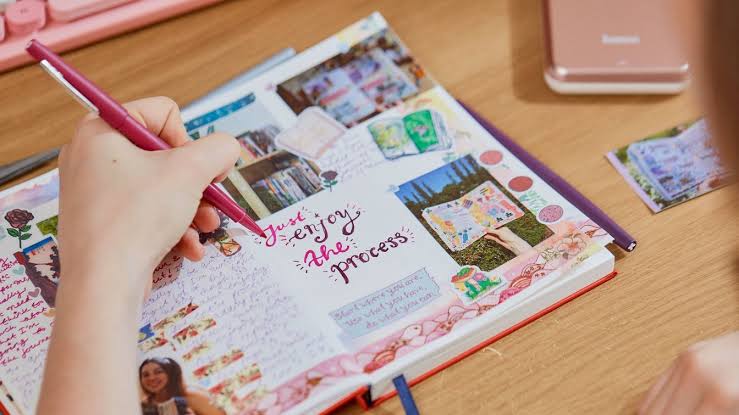Transform your life by putting pen to paper.

Journaling is a simple yet powerful tool for self-discovery, personal growth, and emotional healing. By regularly putting pen to paper, we can gain deeper insights into our thoughts, feelings, and experiences, allowing us to better understand ourselves and our place in the world. In this blog post, we’ll delve into the many benefits of this and provide practical tips to help you get started on your own journaling journey.
The Benefits of Journaling
- Improved Mental Health: Regular journaling can help reduce stress, anxiety, and depression by providing a safe space to express emotions and process difficult experiences.
- Enhanced Self-Awareness: Through this, you can gain a deeper understanding of your thoughts, feelings, and behaviors, fostering personal growth and self-compassion.
- Increased Creativity: The process of writing can stimulate creative thinking and help you explore new ideas, perspectives, and solutions.
- Better Problem-Solving Skills: It can help you organize your thoughts and approach challenges with greater clarity and focus, enhancing your problem-solving abilities.
- Strengthened Memory: Writing about your experiences can help reinforce memories and improve your ability to recall information.
Tips for Starting a Journaling Practice
- Choose a Medium: Decide whether you prefer to write in a physical journal or use a digital platform, such as a dedicated journaling app or word processor. There’s no right or wrong choice—pick the medium that feels most comfortable and accessible to you.
- Set Aside Time: Establish a routine by dedicating a specific time each day or week to journal. This consistency will help make journaling a habit and ensure you’re giving yourself ample opportunity for self-reflection.
- Create a Comfortable Environment: Find a quiet, relaxing space where you can focus on your writing without distractions. Consider lighting a candle, playing soft music, or enjoying a cup of tea to create a calming atmosphere.
- Experiment with Journaling Techniques: There are many different journaling methods to explore, such as free writing, gratitude journaling, and stream-of-consciousness writing. Experiment with different techniques to discover what resonates with you.
- Be Patient and Open-Minded: Remember that doing journal is a personal and evolving process. Give yourself time to find your writing style and be open to whatever thoughts and emotions may arise during your practice.
- Let Go of Perfection: Your journal is a space for self-expression and exploration, not a perfectly crafted piece of writing. Embrace imperfections, and remember that the purpose of doing this is to learn and grow.
How To Do Journal?
Keeping a journal can be a great way to record your thoughts, experiences, and feelings. Here are some steps you can follow to start a journal:
- Decide on the format: You can choose between a physical notebook, a digital journaling app, or even a voice recorder.
- Determine your purpose: Think about what you want to achieve through journaling. Do you want to document your daily life, record your goals and aspirations, or work through personal challenges?
- Choose a time and frequency: Find a regular time each day or week to write in your journal. This could be in the morning, at night, or during lunch break.
- Write freely: Don’t worry about spelling, grammar, or punctuation. Simply write down your thoughts and feelings as they come to you.
- Reflect: Take time to read over what you’ve written and reflect on it. This can help you gain insights into your own thoughts and behaviors.
- Be consistent: Make journaling a habit, even if you don’t feel like writing. This will help you build a routine and keep your journaling practice going.
Remember, there is no right or wrong way to journal. It’s your personal space to express yourself, so make it your own.
Conclusion
Journaling is a powerful practice that can lead to profound personal growth, self-awareness, and emotional healing. By making this journal as a consistent part of your life, you can unlock a world of self-discovery and personal transformation. Take the first step today by picking up a pen or opening a new document, and begin your journey towards a deeper understanding of yourself and the world around you.
![WARNING SIGN OF STRESS: ANXIETY SIGNS AND SYMPTOMS [2024] WARNING SIGN OF STRESS: ANXIETY SIGNS AND SYMPTOMS [2024]](https://peart.one/wp-content/uploads/2024/01/2066319-350x230.webp)
